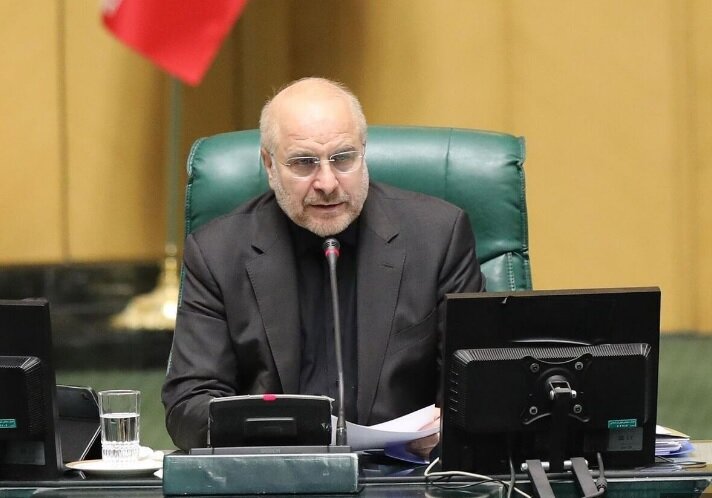National unity is Iran’s strongest shield against enemy’s aggression: Parliament speaker

Parliament Speaker Mohammad Baqer Qalibaf has emphasized the critical role of national unity in safeguarding Iran against future acts of aggression, particularly in light of the recent joint Israeli-American assault on the country.
Speaking during an open session of the Iranian parliament on Sunday, Qalibaf said the latest confrontation had further strengthened a collective sense of national identity among Iranians across the political spectrum. He argued that this unity had dealt a serious blow to the enemy during what he described as the imposed 12-day war.
He suggested that the main deterrent against any future attacks on the country was precisely this cohesion that had been witnessed by the world.
Qalibaf further asserted that preserving national unity should be regarded as a primary responsibility for all Iranians. He linked this imperative to acknowledging the leadership of Ayatollah Seyyed Ali Khamenei, whom he described as a unifying and reassuring authority in times of crisis.
He also pointed out that the enemy had faced its most significant setback during last month’s offensive and suggested that Iran’s growing strength across various domains would ultimately force adversaries to respond to the Iranian people’s rightful demands—rather than pursue what he referred to as either “imposed peace” or “imposed war.”
On June 13, the Israeli regime launched a surprise and unprovoked offensive against Iran, targeting senior military commanders, nuclear experts, and civilians in a clear act of aggression.
In a further escalation, the United States entered the conflict over a week later, striking three Iranian nuclear facilities. The attacks constituted a grave breach of the United Nations Charter, international humanitarian law, and the Nuclear Non-Proliferation Treaty (NPT), sparking international concern over the legality of Washington’s actions.
In retaliation, Iran’s Armed Forces carried out a series of coordinated operations, striking sensitive Israeli military positions across the occupied Palestinian territories, as well as the al-Udeid airbase in Qatar—the largest American military installation in West Asia.
The decisive response, which culminated on June 24, effectively brought an end to the joint Israeli-American assault, showcasing Iran’s readiness to defend its sovereignty.
‘Israel targeting Muslim unity to expand occupation’
Qalibaf stated that the Israeli regime is pursuing a long-term strategy to destabilize and fragment Muslim countries in a bid to expand its territorial occupation.
He denounced Israel’s recent airstrikes on Damascus, characterizing them as part of a broader pattern aimed at disarming and disintegrating the region’s independent states. He said that such aggressive actions are intended to pave the way for the Zionist regime’s geopolitical ambitions.
The parliament speaker reiterated that Tehran firmly supports the unity and territorial integrity of Syria, emphasizing Iran’s consistent backing of the Syrian people in the face of foreign aggression and destabilization efforts.
Qalibaf further stated that the Zionist regime remains a fundamental threat to peace, stability, and national sovereignty across West Asia. According to him, Tel Aviv does not respect any form of legitimate statehood or regional equilibrium, and can only be deterred through decisive strength.
Elsewhere in his remarks, the speaker welcomed a recent move by the Hague Group to implement an arms embargo on Israel. He described the decision as a bold and necessary step toward accountability, suggesting that such measures could serve as an effective framework for confronting the regime’s unlawful conduct on the international stage.
Leave a Comment